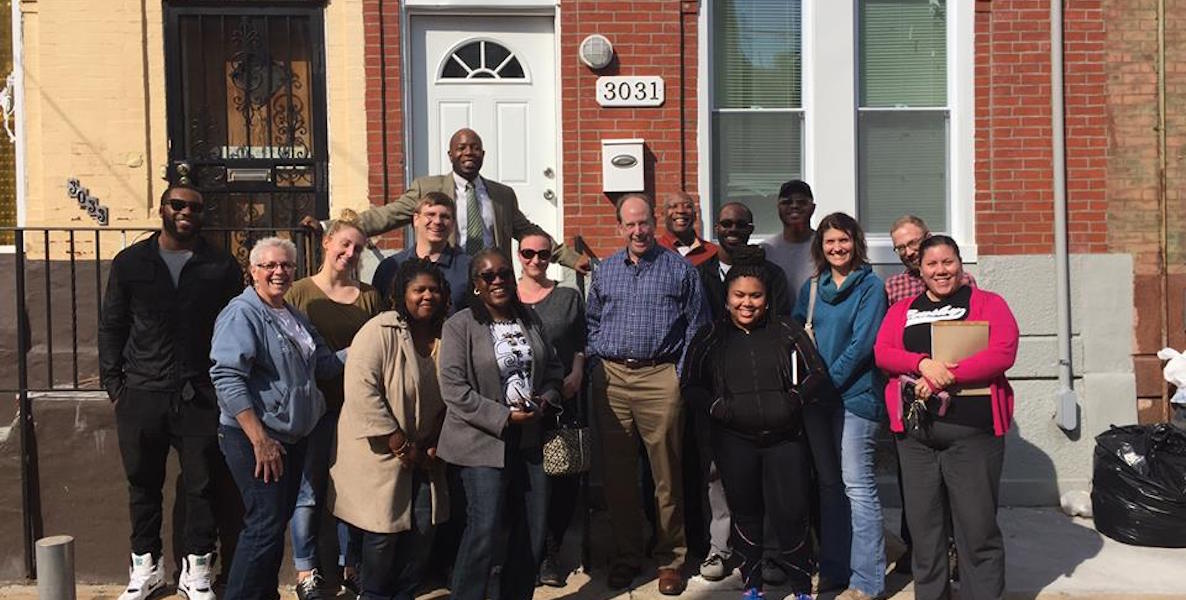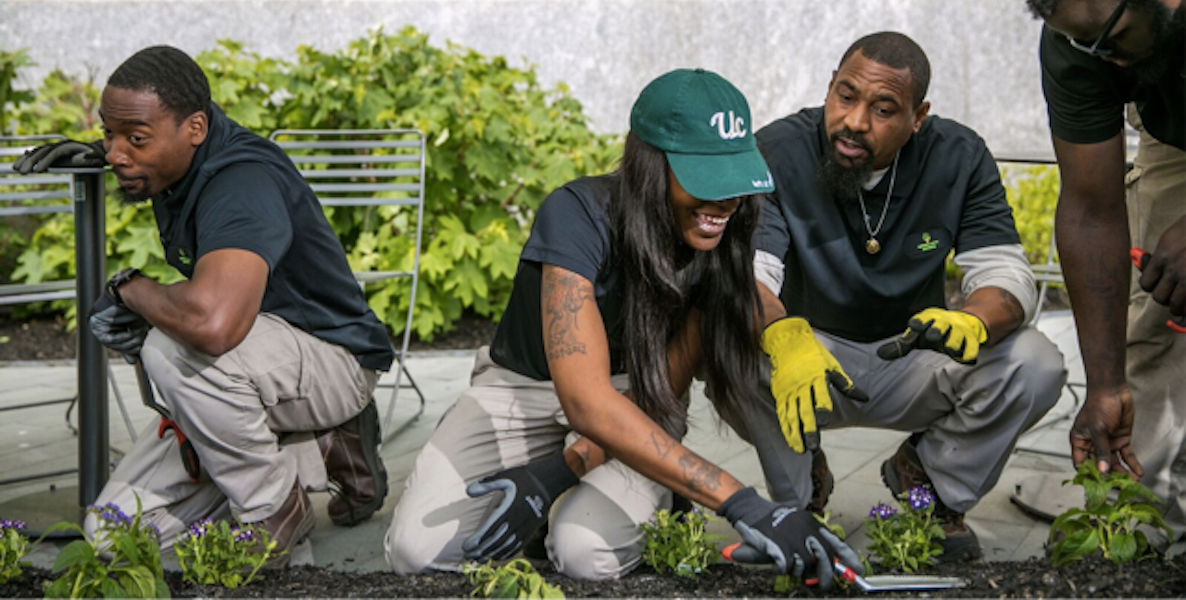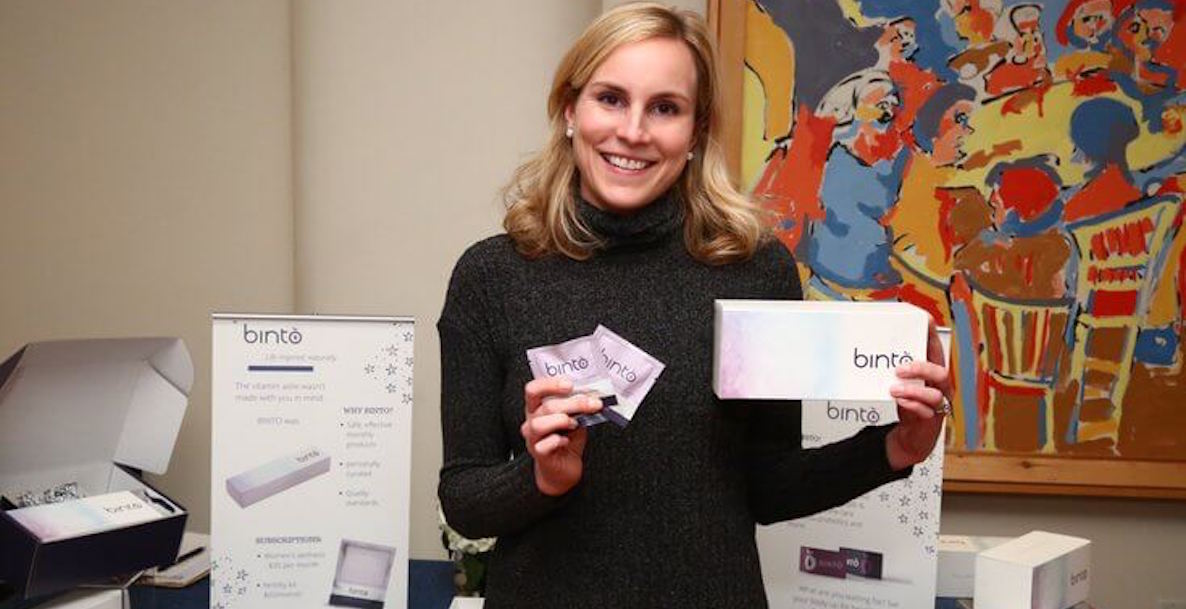When Suzie Welsh was 16, she begged her parents to let her travel to Malawi for a mission trip with GAIA, an organization that creates and implements healthcare programs in areas affected by AIDS. She insisted she’d be fine, and they begrudgingly obliged.
She returned several weeks later having observed deep poverty, witnessed woman after woman be diagnosed with HIV, met toddlers left orphaned by the AIDS crisis and, to her parents’ chagrin, survived malaria. Her encounter with the women of Malawi and the disease that kills 405,000 people in Africa each year, as well as her own relatively easy recovery, opened Welsh’s eyes to the importance of women’s health, both in her own country and globally.
Be Part of the Solution
Become a Citizen member.“In Malawi, women are the backbones of their communities. They’re the caretakers. They’re driving the economic growth,” she says. “If they’re not healthy, how can the country move forward?”
Fast forward to 2018, and Welsh now has a master’s degree in nursing for health leadership from the University of Pennsylvania, and is an adjunct nursing professor at Villanova. And she has used her experience in Malawi to devote her life to women’s health.
In 2016, Welsh founded BINTO, a tele-health and subscription box company that focuses on women’s reproductive health. Women who sign up receive vitamins, supplements, probiotics, and menstrual products each month that match their specific needs, as well as the option to talk to a nurse about health concerns.
Currently, the company only operates in the United States. But Welsh hopes, eventually, to make a broader impact—even as far away as Malawi, where it all began. “Our guiding star is how can we change health outcomes for women in the United States, and eventually globally,” she says.
“You can get personalized food, personalized shampoo; everything is personalized,” Welsh says. “The need to get access to care efficiently is here to stay. We don’t want to wait, and we’re always going to have health issues.”
When signing up for BINTO, subscribers take a short survey—think Stitch Fix or Birchbox. They choose their current primary reproductive concern—period, fertility, pregnancy or menopause—then answer questions about more specific concerns. If you choose period, you’ll be asked about your energy levels, mood, eating habits, and period flow. If you’re trying to get pregnant and choose fertility, you’ll be asked how long you’ve been trying, as well as if you have any diagnosis for an inability to conceive thus far. Welsh and her team currently review each survey, though the company is working on an algorithm to streamline the process.
Within a week, you receive your personalized box with daily to-go packages of vitamins, supplements, a probiotic, and period freebies like tampons or pads.
Welsh says the product was created to meet the pace and need for personalization of the 21st century. “You can get personalized food, personalized shampoo; everything is personalized,” she says. “The need to get access to care efficiently is here to stay. We don’t want to wait, and we’re always going to have health issues.”
![]() One of BINTO’s main selling points is that it can alleviate the wait time between realizing you need a supplement for energy or hormone imbalance and actually finding something that works for you. “Part of the issue with women’s health is that we don’t know what supplements we need,” Welsh says. “We have these high value issues to us as consumers, but they’re low value to a doctor. If you have these questions, it takes well over a month to get in to see your ob/gyn.”
One of BINTO’s main selling points is that it can alleviate the wait time between realizing you need a supplement for energy or hormone imbalance and actually finding something that works for you. “Part of the issue with women’s health is that we don’t know what supplements we need,” Welsh says. “We have these high value issues to us as consumers, but they’re low value to a doctor. If you have these questions, it takes well over a month to get in to see your ob/gyn.”
So instead of waiting, women make a trip to the pharmacy and perform the guesswork themselves. “We say, ‘I’m going to self-diagnose and go down the rabbit hole online and start staring at the shelf,’” says Welsh. “What BINTO is doing is breaking the cycle of buying and trying. If you have chronic yeast infections, or period cramps, or endometriosis, we’re offering supplements for those high value issues.”
You’ll also save some money—while BINTO starts at $35 a month, a one-month supply of just a probiotic can easily cost $40. The pregnancy box is $45 a month, and the fertility box is $60, as those products cost more to make. You’ll also soon be able to purchase a generic women’s health starter BINTO pack from Urban Outfitters’ shelves for $35.
Lauren Milman, an ob/gyn and reproductive medicine specialist with Abington Reproductive Medicine, says BINTO can serve a need—as long as it is used to supplement and not substitute time with a doctor. “A lot of people take supplements and this takes some of the stress out of finding the right ones, which is helpful,” she says. “It works if you’re trying to achieve some goal or maintain your health.”
“Part of the issue with women’s health is that we don’t know what supplements we need,” Welsh says. “We have these high value issues to us as consumers, but they’re low value to a doctor. If you have these questions, it takes well over a month to get in to see your ob/gyn.”
But health issues involving pain or requiring a prescription are different, and should still be taken seriously. “That involves more care and oversight in my mind,” Milman says.
Welsh agrees—the subscription box, of course, is not meant to eliminate necessary trips to the doctor, but to supplement subscribers’ health care in those gaps between ob/gyn appointments. She compares the product to the unveiling of the ATM; the new technology didn’t eliminate bank tellers, but allowed them to focus on higher level consumer issues.
Unique to BINTO is that it creates its own vitamins and supplements, unlike Birchbox and other subscription companies, which generally compile products from various companies into one box. BINTO started that way, but after doing some research, Welsh realized creating their own products was the way to go. “We really saw an opportunity to develop our own line and make a stake,” says Welsh. “I had been going to multiple brands to find what I wanted for different things, and I didn’t like a lot of things that were out there.”
The FDA has little regulatory control over vitamins and supplements—something that pushed Welsh to start BINTO in the first place—and many are filled with unnecessary fillers and dyes. Take gummy vitamins, for example: Plenty of companies produce them, but Welsh says BINTO won’t use or make them because the gummy hinders absorption, leading to a lack of benefit from the product.
Though Welsh is grateful for her initial investors, the process introduced her to an unfortunate truth in business. “There were several investors in the room. All of them were male,” she notes. “But that’s the reality of investors in today’s world.”
BINTO has a lab in Oregon that manufactures its products, as well as an impressive science counsel that reviews scientific research drawn from the World Health Organization, the Center for Disease Control, and the American Society for Reproductive Medicine throughout the R&D process to determine which ingredients women actually need and in what amounts.
The scientific oversight and reliance on research are both things that Milman says give her more confidence in the product.
Welsh also likes to ensure that the ingredients come from the best locations, and BINTO sources them from all over the world. “Spain grows our beta carotene because they don’t use any preserves or pesticides,” Welsh explains, while probiotics are only sourced from the United States. The feminine hygiene products are created by third-party companies, but BINTO is launching its own line this summer, which should be available to consumers in the fall.
The idea for a women’s health subscription box had been stirring in Welsh’s head for about a year when she enrolled in a healthcare entrepreneurship class at Wharton. At the time, she was working as a nurse in Penn’s fertility clinic and studying for her master’s through the school.
“I noticed this niche. There wasn’t one women’s health brand or product brand line that really looked at helping women figure out what over-the-counter supplements they could use,” she explains. “There wasn’t one company looking at that big picture from a service standpoint or a brand standpoint.” The Wharton class gave her the space to pitch her idea, and she was able to raise $120,000 through a round of investors brought into the class. (The name is an acronym for “Bun in the Oven,” as when the company launched in 2016 it was solely fertility-focused.)
Though Welsh is grateful for her initial investors, the process introduced her to an unfortunate truth in business. “There were several investors in the room. All of them were male,” she notes. “But that’s the reality of investors in today’s world.”
![]() BINTO is in the middle of another, much larger stage of investing right now; the company is looking to raise between $750,000 and $1,000,000 in order to expand the service side of the company, including its tele-health component. Subscribers can currently talk to a nurse on the phone or via online chat to get fast, one-on-one advice about health concerns, but Welsh wants to do more. “We’ve found that what women love most about us is that we’re founded by real health experts,” she says. “They like the idea of talking to a nurse. They can trust us.”
BINTO is in the middle of another, much larger stage of investing right now; the company is looking to raise between $750,000 and $1,000,000 in order to expand the service side of the company, including its tele-health component. Subscribers can currently talk to a nurse on the phone or via online chat to get fast, one-on-one advice about health concerns, but Welsh wants to do more. “We’ve found that what women love most about us is that we’re founded by real health experts,” she says. “They like the idea of talking to a nurse. They can trust us.”
Right now, BINTO has three full-time employees and three part-time contracted employees, but Welsh would like to use a portion of raised funds to hire more tele-health positions so that BINTO can connect with more women more quickly. She also wants to improve and expand the chat function and make the website more user-friendly and adaptable to subscribers’ needs.
BINTO has been revenue generating since its launch. The company does not publicize its subscriber numbers, but Welsh promises they’re high. “We’re very busy,” she laughs.
Despite Welsh’s success as a nurse and a business-owner, she still points to Malawi, and her encounter with malaria, as the place where her fire for all of this was sparked.
“Because I had money and access to a vehicle, it was a completely curable and preventable disease, and it’s still the number one killer of women and children in Africa,” she explains. “I happened to be fortunate and have access to care. Why is that fair? Why can’t we get this care to everyone?
“At 16 I had no idea that I was going to come up with this thing called BINTO, but it did lead me down this path of passion and innovation and women’s health.”
Photo via BINTO







